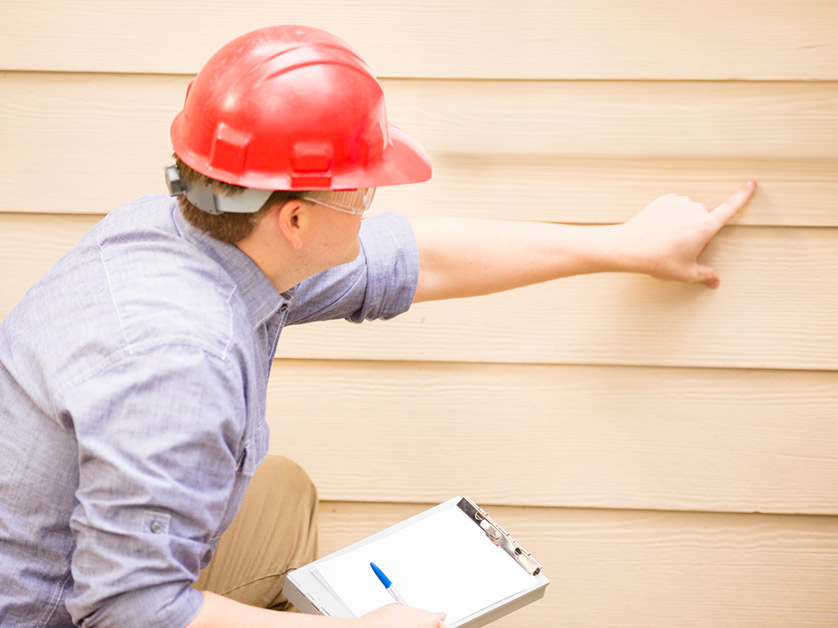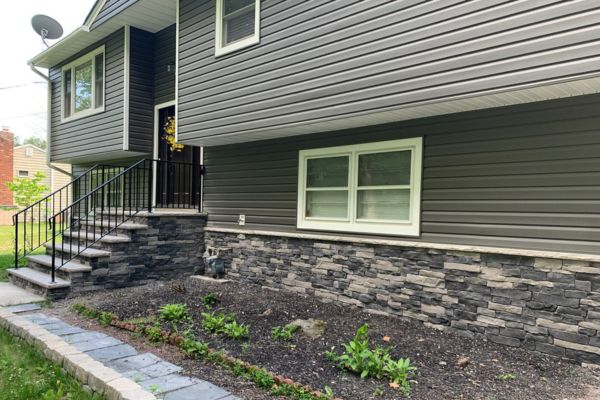Morris Siding Contractor Known for High-End Installations and Customer Care
Morris Siding Contractor Known for High-End Installations and Customer Care
Blog Article
The Essential Overview to the Different Types of Exterior Siding and Their Distinct Benefits
In the realm of home enhancement, picking the appropriate house siding is an essential decision that impacts both visual appeal and practical efficiency. With so several alternatives to think about, which siding product genuinely stands out for your specific task?
Timber House Siding
Wood siding, a popular choice for residential outsides, provides a timeless visual that integrates all-natural appeal with structural stability. This home siding material is offered in different designs, including clapboard, shingles, and board-and-batten, permitting home owners to personalize their appearance to match their style choices. Timber siding is generally crafted from durable types such as cedar, redwood, or pine, which are understood for their strength and capability to stand up to ecological stressors.
Among the primary benefits of wood home siding is its excellent insulation residential or commercial properties, which can add to power performance and reduced home heating costs. Additionally, timber house siding is naturally degradable, making it an eco-friendly alternative when sourced sustainably. Routine upkeep, including painting or staining, can prolong its lifespan and improve its look, enabling house owners to preserve the natural appeal of the wood.
Nonetheless, potential downsides consist of sensitivity to parasites, rot, and climate damages, demanding adequate treatment and maintenance - morris siding contractor. Despite these problems, when properly taken care of, wood house siding can offer a attractive and resilient option that improves the character of a home while providing a warm, welcoming ambience

Plastic House Siding
Vinyl siding has emerged as a leading choice for homeowners seeking a low-maintenance exterior choice that integrates resilience and affordability. This flexible product is crafted from polyvinyl chloride (PVC), making it immune to different climate conditions, including wetness and UV rays. Consequently, plastic exterior siding does not warp, rot, or fade, making certain durable aesthetic charm.
Among the primary benefits of vinyl exterior siding is its extensive series of shades and designs, allowing property owners to achieve the preferred appearance for their residential or commercial property without the requirement for constant repainting. In addition, plastic siding is simple to mount, which can considerably reduce labor expenses during building or remodelling jobs.
Vinyl exterior siding also adds to energy efficiency. Many choices attribute insulation backing, which boosts thermal performance, helping to keep comfy indoor temperatures and potentially reducing energy costs. Furthermore, its smooth surface assists in easy cleaning, needing only routine cleaning with a yard hose to get rid of dirt and particles.
Fiber Concrete House Siding
Fiber cement house siding has obtained grip among home owners and builders alike as a result of its remarkable combination of sturdiness and visual flexibility. Made up of a mixture of cement, cellulose, and sand fibers, this house siding choice is engineered to endure severe climate condition, consisting of high winds, heavy rainfall, and temperature variations, making it a long-lasting option for household outsides.

One of the primary benefits of fiber concrete exterior siding is its resistance to bugs, such as termites, and its non-combustible nature, offering boosted fire safety. morris siding contractor. Furthermore, it is readily available in a broad variety of colors, styles, and appearances, enabling homeowners to accomplish their desired visual without compromising efficiency
An additional advantage is its reduced upkeep needs; fiber concrete house siding generally calls for paint or staining every 5-10 years, which is less frequent than other products. Furthermore, its longevity adds to a lower overall expense of possession, as it reduces the requirement for constant fixings or substitutes.
Eventually, fiber concrete house siding represents an exceptional investment for those looking for a resilient, attractive, and flexible exterior choice, combining both type and function to boost the home's curb allure.
Metal Siding
The allure of metal exterior siding depends on its robust sturdiness and modern visual appeal, making it a favored selection for contemporary style. Available in materials such as aluminum and steel, metal exterior siding uses a series of shades and finishes, permitting home owners to accomplish a tailored appearance that enhances their design vision.

Power effectiveness is one more significant benefit, as numerous metal house siding products are developed with insulation options that aid regulate indoor temperatures. This can result in reduced power expenses over time. Additionally, metal find out here now home siding is usually recyclable, making it an eco-friendly option for sustainability-minded homeowners.
The setup process for metal house siding can be relatively uncomplicated, resulting in a quicker turn-around time for building tasks. Overall, steel siding incorporates performance and style, making it a sensible alternative for those seeking a visually attractive and long-lasting exterior coating.
Brick and Stone Exterior Siding
Block and rock siding stands apart as a classic choice that improves the visual appeal of any kind of home. Recognized for their resilience and low upkeep, these products offer a phenomenal return on financial investment while raising the residential property's curb appeal. Readily available in different colors, textures, and patterns, block and rock can be customized to suit varied building designs, from conventional to modern-day.
One of the key advantages of brick and stone siding is their energy effectiveness. Both products possess all-natural insulating buildings that aid control indoor temperatures, potentially minimizing cooling and heating expenses. Furthermore, they offer exceptional fire resistance compared to various other siding choices, contributing to boosted safety and security.
Another benefit is their long life. Block and rock can last for years, commonly needing marginal upkeep past occasional cleansing. Unlike wood house siding, they are unsusceptible parasites and rot, making certain a lasting exterior that holds up against the components.
Conclusion
In summary, the selection of house siding dramatically influences a home's aesthetic appeal, energy efficiency, and upkeep demands. official site Each kind of exterior siding-- whether wood, plastic, fiber metal, brick, or concrete and stone-- provides unique benefits customized to various property owner preferences and environmental conditions. Understanding these alternatives allows educated decisions that enhance both the sturdiness and aesthetic charm of domestic outsides. Ultimately, picking the check my site best siding is necessary for achieving an equilibrium between functionality and layout in property architecture.
One of the main advantages of wood siding is its outstanding insulation residential or commercial properties, which can contribute to power efficiency and lower heating costs. Additionally, timber home siding is eco-friendly, making it an environmentally friendly option when sourced sustainably.One of the main benefits of metal exterior siding is its resistance to different environmental variables.Power performance is another significant advantage, as many steel siding items are developed with insulation choices that assist control interior temperature levels. Each kind of house siding-- whether timber, vinyl, fiber metal, block, or concrete and stone-- uses distinct advantages tailored to different home owner preferences and environmental conditions.
Report this page